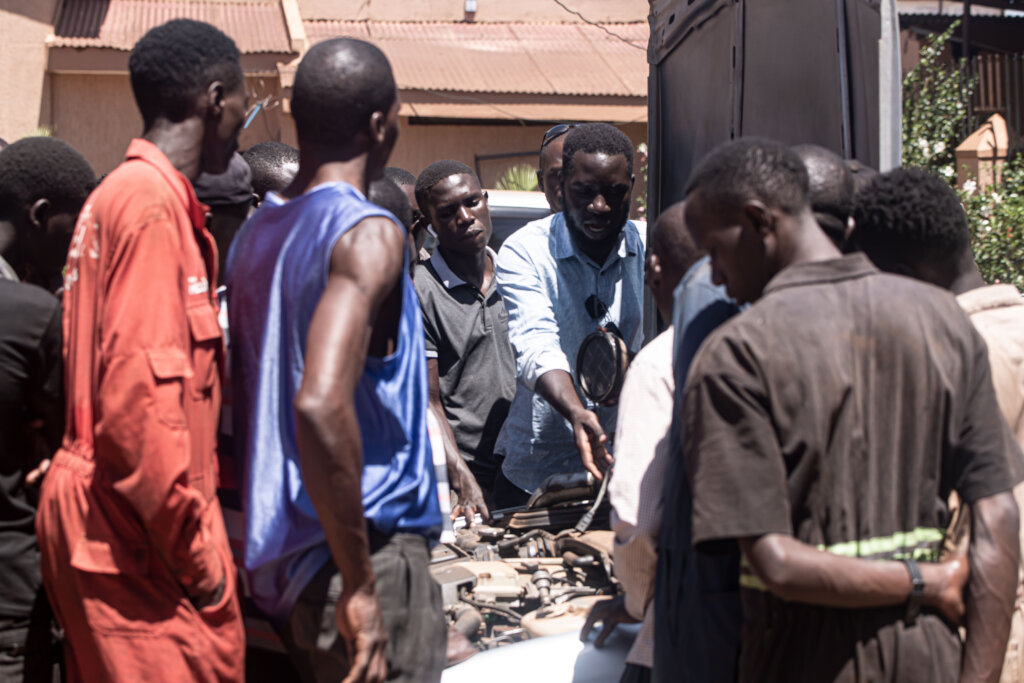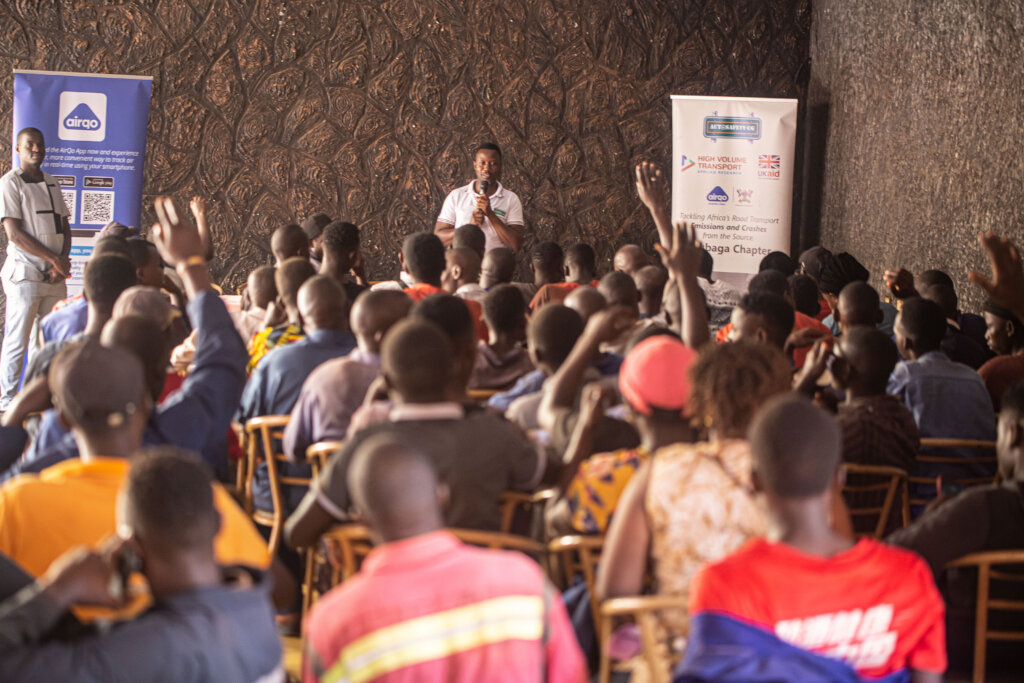By Michael Wanyama | Team Leader
Overview
Since late 2023, this project has recived support from High Volume Transport under the FCDO/UK-Aid funded Transport-Technology Research and Innovation for International Development (T-TRIID) program, with main deliverables including emissions data collection and the training of local mechanics aimed at helping them institute best practices around automobile maintenance, to foster a reduction in vehicular emissions within Kampala.
So far, 3 training wokshops have been organised and conducted successfully with local automobile technicians targeting those working in makeshift garage settings. For example, technicians tending to motorcycles, passenger vehicles, heavy-duty trucks and some people dealing in vehicle-related fabrications and spare parts. The focus is on the informal sector and participants fall in the 18 – 35 age group. A total of 407 mechanics (fabricators, parts dealers and general mechanics for automobiles) took part in the training workshops.
The training workshops followed a thorough needs assessment through four (4) focus group discussions that we had with local mechanics in Rubaga division. The aim was to appreciate what they already know about inbuilt safety and emission control systems in the automobiles they maintain, air quality and transport-induced air pollution and how some of their practices potentially contribute to increased road crashes and air pollution in Kampala as well as understanding their concerns and challenges they face.
From the findings of all focus group discussions, a tailored training workshop manual and toolkit was developed to facilitate interactive practical sessions that equip local auto-technicians with knowledge and skills for best practices around automobile maintenance. The overall goal is to support local mechanics towards becoming change agents for the improvement of road safety and air quality in Kampala and beyond.
Our community engagement partner, Makerere University’s AirQo project alongside the Ministry of Works and Transport offered additional technical support in the workshop; specifically on how vehicle pollution affects our health and how local air quality data can be accessed and interpreted, as well as helping participants understand a brief overview on the country’s regulatory framework on transport emissions and road safety.
Workshop participants learnt:
Achievements and challenges.
The training workshops were successful in terms of interaction with mechanics and the content they received during the training. This happened at such a time when we had free tools to give away as sponsored by a Netherlands-based charity organisation, Gered Gereedschap.
The turn-up was quite overwhelming due to the high interest the young people have for the initiative. At some point we had to limit the numbers during mobilisation to avoid overshooting the budget.
One more workshop is pending and it will likely have more government representations, including the Ministry of Education under the Directorate of Industrial Training (DIT)
The major challenge was that participants rarely kept time, making the planned agenda not so relevant. We had to pick critical areas to maintain the workshop's overall objective.
Secondly, there’s a need to keep engaging participants after the training workshops, but resource availability does not accommodate that, which is why we still need GlobalGiving's fundrasing opportunity.
Links:
Project reports on GlobalGiving are posted directly to globalgiving.org by Project Leaders as they are completed, generally every 3-4 months. To protect the integrity of these documents, GlobalGiving does not alter them; therefore you may find some language or formatting issues.
If you donate to this project or have donated to this project, you can receive an email when this project posts a report. You can also subscribe for reports without donating.
Support this important cause by creating a personalized fundraising page.
Start a Fundraiser
